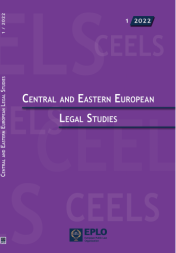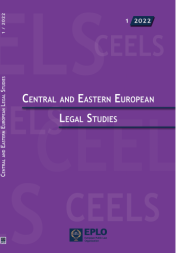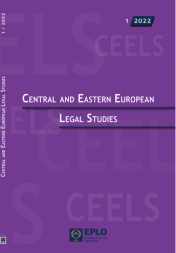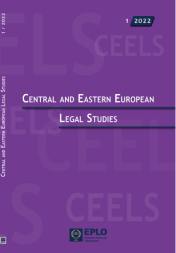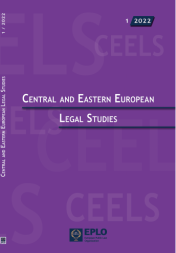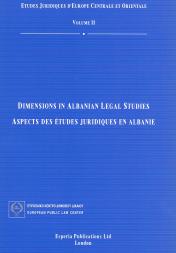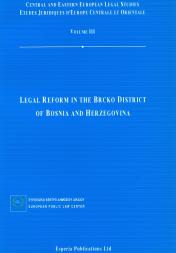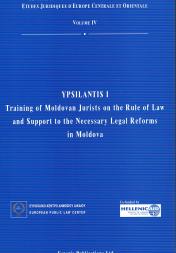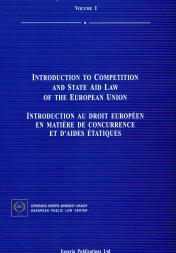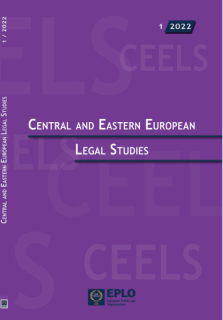
CENTRAL AND EASTERN EUROPEAN LEGAL STUDIES 1/2022
The first issue of the year 2022 of the Central and Eastern European Legal Studies starts with an article on lobbying, an integral part of a healthy democracy. The article, on the one hand, provides us, through its theoretical framework, with a better understanding of the way lobbying is regulated in Europe, and, on the other hand, presents an analysis of the perspective that lobbying is no longer just a debated notion in the academic environment in Romania, but represents a need of society that seeks to be materialized in a law aligning it to the standards of European legislation.
The second article analyzes the quality and effectiveness of the constitutional basis for the structure and activities of public administration in Slovakia in terms of promoting the rights guaranteed by the Charter of Fundamental Rights and Freedoms and the Constitution of the Slovak Republic in the context of procedural principles recommended by the Committee of Ministers of the Council of Europe. It analyzes the state of observance of fundamental rights and freedoms in the performance of public administration activities, evaluates the degree of effectiveness of legal means by which the addressee can defend himself against the violation of his subjective right and at the same time points out the legislative pitfalls and suggests possible, though not the only, considerations de lege ferenda.
The following article discusses one of the major challenges that the Kingdom of Serbs, Croats and Slovenes faced after its establishment, the emergence of legal particularism. In the newly created State there were six areas of law, each with its own special features; the legal system of the Kingdom of Serbs, Croats and Slovenes/Yugoslavia was never fully unified.
The following article aims to answer the research question ‘What are possible barriers in accessing abortion procedures amongst (undocumented) immigrant women in the United States, and what are possible consequences of the inability to do so?’, in light of the historical setback in the reproductive rights of American women marked by the overturning of Roe v. Wade. This article is concluded by recommendations to support immigrant women in the future.
Last but not least, in an article coming from Georgia the author discusses the difficulties that individuals face from a practical point of view in the administrative offense proceedings, confronting the findings of the domestic courts and the judgment of September 2022 of the Strasbourg Court, that encompasses the court’s view on the specific peculiarities of the Code of Administrative Offenses of Georgia and answers the pressing topic of whether the Code is compatible with the European Convention on Human Rights and the Strasbourg Court’s case-law.
Summary
A. Matei / I. A. Dogeanu, The Regulation of Lobbying in Romania and in the EU: A Comparative Perspective [IN ENGLISH] (22 pp.)
D. Krajný, Impacts on the Decision-making of the Administrative Bodies when Applying a Resolution of the Council of Ministers [IN SLOVAK] (25 pp.)
S. Savić, Legal Particularism and the Creation of Uniform Law in the Kingdom of Serbs, Croats and Slovenians / Yugoslavia [IN GERMAN] (8 pp.)
E.J.D. van Malsen, My Body, No Choice: The Access to Legal and Safe Abortions for Immigrant Women in a Post-Roe Era [IN ENGLISH] (32 pp.)
T. Oboladze, The Code of Administrative Offenses of Georgia – High Time for the Reconceptualization of the Most Criticized Legal Act in Georgia [IN ENGLISH] (30 pp.)














